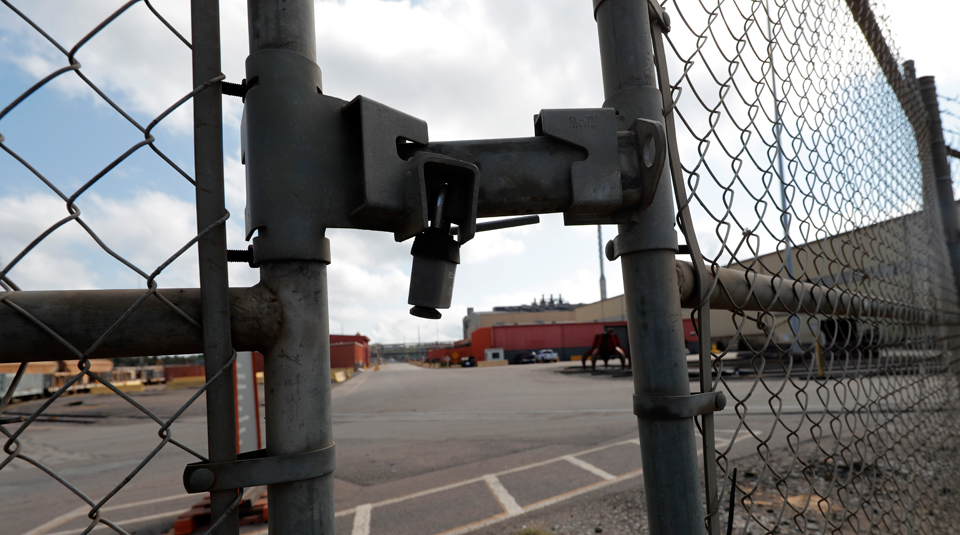
What if America competed with other nations to have the best universal healthcare system or the best public education system? If we competed to be the leader in creating a green economy to address climate change? If we competed to end poverty and inequality?
Donald Trump wants America to compete in the global economy, but for him, that means making American lives worse rather than better. It’s not a new dynamic under capitalism, a system in which profits are generated by exploiting people and driving down their wages.
But his behaviors and pronouncements do put in focus this crucial question: Does he have our nation competing for the wrong prize?
The 2020 election will in part be a referendum on what America will compete for.
I know facts have a hard time surviving and garnering any credibility in Trump’s truth-free political swamp, but let’s give asserting a few facts at the outset here the old college try.
FACT: Homelessness in the U.S. has increased for the third year in a row under Trump’s rule.
FACT: Despite low unemployment rates, poverty is increasing. West Virginia is a telling case study of how the jobs being created, particularly in retail and service industries, do not pay a living wage.
As Sean O’Leary, senior budget analyst for the West Virginia Center on Budget and Policy, told CBS News, “It’s cashiers, retail salespeople, service employees—those are our fastest-growing jobs, but those jobs don’t pay very well.”
Tara Martinez, executive director of a soup kitchen in West Virginia, elaborated, “The jobs that are available are minimum wage and part-time—they don’t have benefits.”
Poverty, homelessness, and despair continue, even for those who are working and seek work in this supposedly thriving economy.
FACT: An astounding percentage of those working in the wealthiest nation on earth live on the edge. One-third of all workers make less than $12 per hour and 42% make less than $15 per hour. A third of the population has no savings, and another third has less than $1,000 in savings, leaving little to no wiggle room for any unexpected expenses, such as medical bills or routine car repairs. Fourteen percent of Americans live in poverty, as reported by Forbes, a publication far from being a liberal rag. These are stressful conditions.
Now, you may wonder how the conditions detailed in these factoids can be consistent with the news of a supposedly thriving economy boasting historically low unemployment rates and record stock market levels.
It’s not really that hard to figure out, though, when we exercise our collective memory a bit and recall how Donald Trump forecast his plan for enhancing America’s competitiveness in the global economy and for, as the red hat too often reminds us, making America great again.
Let’s jump in our DeLorean, charge up the flux capacitor, and return to the Republican primary debate on the Fox Business Network in November 2015.
Trump claimed then that American wages were “too high.” And he echoed and underscored this position the next day in an interview on MSNBC’s “Morning Joe.”
When Mika Brzezinski observed that “nobody can live” on the federal minimum wage of $7.50 an hour, Trump responded:
“We have to become competitive with the world. Our taxes are too high, our wages are too high. Everything is too high. We have to compete with other countries.”
“We have got to do something to compete with the rest of the world. Our country is not competitive anymore. That’s why we’re losing all of the manufacturers.”
We should not be surprised that so many Americans are suffering, that misery is on the rise, in this “thriving” economy, precisely because Trump sees the path to making the American economy great as entailing the worsening of many Americans’ individual economic well-being.
As the great writer and poet Maya Angelou tells us, “When someone shows you who they are, believe them the first time.”
Any economist worth their salt will tell you that the goal of an economy should be to produce and distribute goods and services in the most efficient way possible to meet the needs of the people living within that economy.
Trump has shown no desire to meet the needs of the American people, and that is not in his economic plan.
Consider healthcare. Last year, a federal judge in Texas threatened millions of Americans’ health care, declaring the entirety of the Affordable Care Act unconstitutional. The Trump administration effectively supported the suit, doing nothing to support or defend the federal law. As of yet, despite promises, Texas legislators have done nothing to develop a replacement should the Affordable Care Act disappear in Texas.
Supporting efforts to make healthcare less accessible is not creating an economy designed to facilitate Americans’ lives and help them meet their most basic needs.
And don’t forget, Trump cut food stamps to some 700,000 people. Is this policy consistent with cultivating an economy that affirms and supports human life? Not at all.
Trump’s economy is designed to transfer wealth to the top, not serve the needs of the American majority.
Trump’s tax cuts, for example, did not benefit most Americans—60% of the total savings of the legislation went to the top 20% of earners, while the top 1% were gifted 17% of all the tax cut dollars. And companies that promised to re-invest the windfall they received when Trump slashed the corporate tax rate from 35 to 21% still engaged in massive layoffs.
What are we competing for? And with whom?
Why don’t we compete with all the other industrialized nations in terms of seeking to provide universal healthcare to Americans?
Why don’t we compete with Finland in seeking to provide a world-class public education?
Why don’t we compete with Denmark in terms of having a government-led charge to convert to largely green renewable energy sources?
If making America economically competitive means making American lives worse, let me suggest we are competing in the wrong arena for the very wrong prize.
Let’s start with the identifying the prize to be making sure Americans have a high quality of life characterized by access to adequate housing and healthcare, to quality public education, to clean water and air, to nutritious diets, to a healthy and vibrant public sphere and cultural life, and to a foreseeable future on this planet.
And let’s keep our eyes on that prize.











Comments